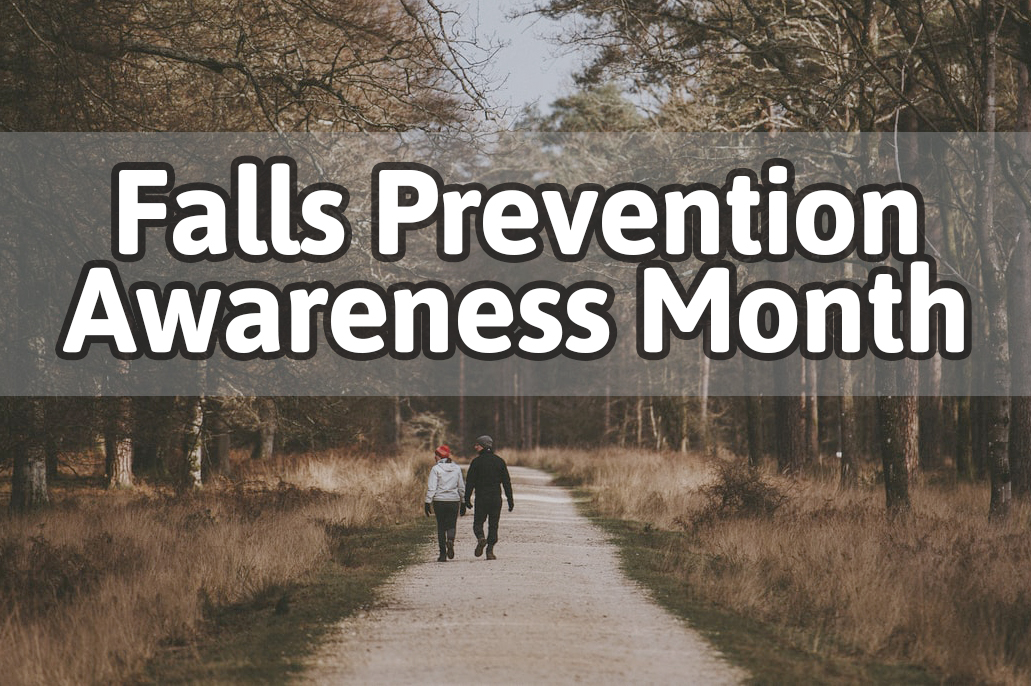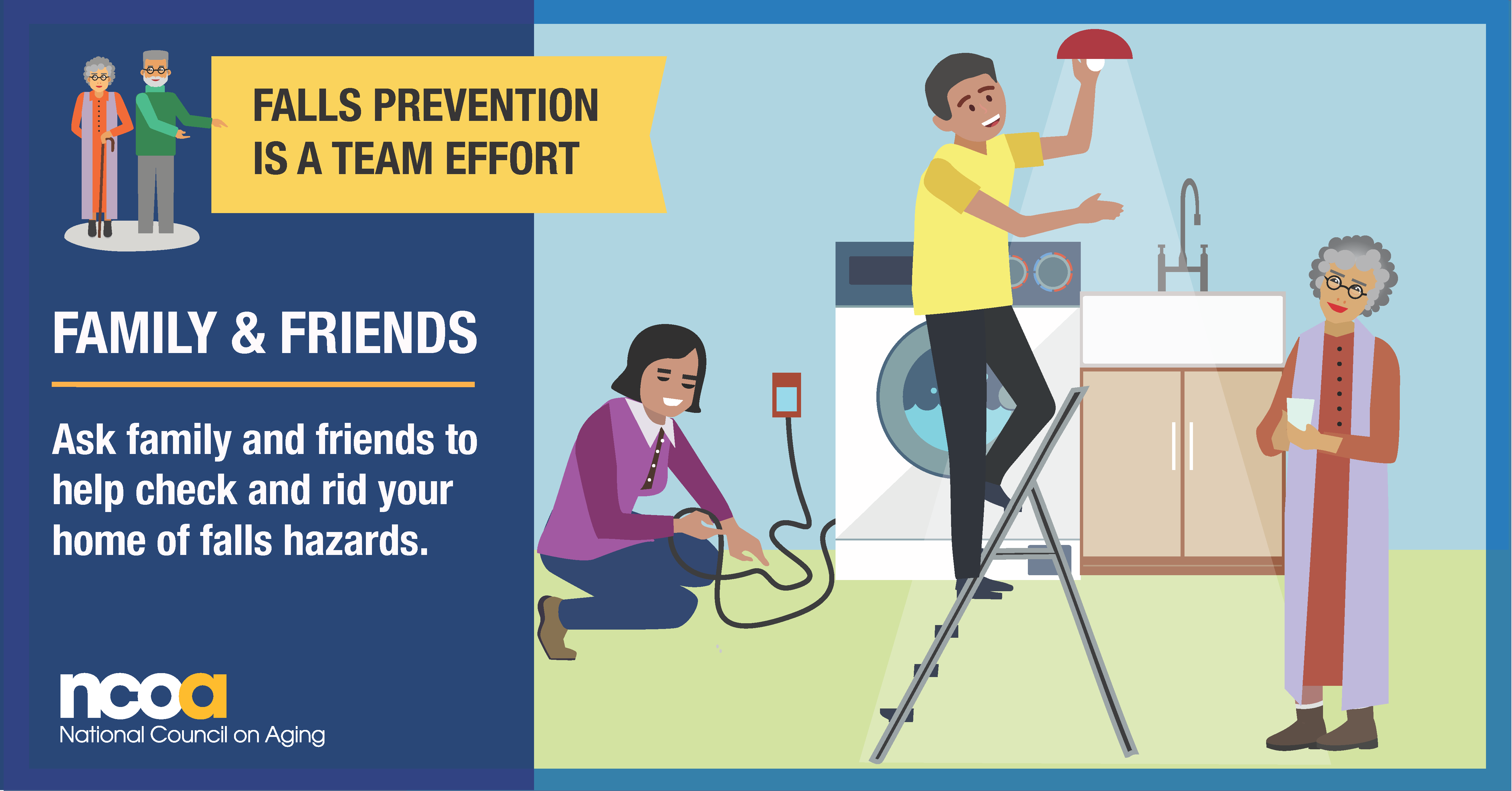
September is Falls Prevention Awareness Month, which is an opportunity to assess your risk of falling and to take proactive steps to keep yourself safe.
According to the Centers for Disease Control, approximately 3 million older people are treated in emergency departments for fall injuries every year, and about 20 percent of falls result in serious injuries, such as broken bones or a head injury.
There are several steps you can take right now to lessen your chances of falling.
Assess your Health: Discuss your risk of falling with your doctor and review your medications. Ask about any medication side-effects that could increase your risk of falling. Before meeting with your doctor, you can perform a self-check to determine your fall risk. Click here for the self-assessment. Your eyes and ears also help maintain balance, so have your vision and hearing checked annually.
Exercise Programs: In a typical year, older adults are encouraged to attend an exercise class that helps improve balance, strength and flexibility. The COVID-19 pandemic has shuttered many councils on aging and gyms throughout the region, however. Many of the classes typically hosted at local senior centers are being filmed and broadcast on public access television. Check your local listings to see what times these shows air. Coastline will be offering a fall-prevention course called “Matter of Balance.” Click here for more details about that class.

Safety at Home: There are several modifications you can make to your home to lessen your chances of falling. Keep walkways and stairs well-lit and clear of clutter, and remove any throw rugs or area rugs that can be easily moved with your foot. Consider having grab bars installed in the tub or shower and near the toilet. Click here for more information about modifications you can make to your home.
Safety Outdoors: Be on the lookout for cracks in the sidewalks or changes in the terrain of sidewalks. Take your time when crossing the street. Be sure to remember your mask if you plan on walking in heavily populated areas where social distancing may prove difficult.
For more information, view the video below from the National Councils on Aging:

Recent Comments